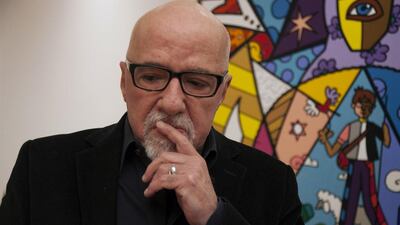In Paulo Coelho's global bestselling book The Alchemist, the protagonist Santiago sets off from his home in Andalusia in pursuit of treasure that he has seen in a dream.
This young goat herder’s journey must take him to Egypt and he must seek his “personal legend”. It is this pilgrimage that allows him to discover his truth and how the universe is conspiring to help him to live his personal legend. Spoiler: after his epic journey, he returns to the same tree under which he used to sit to watch his herd. Buried beneath the tree is the treasure of which he dreamt.
The book has sold 65 million copies and its author is the most widely translated living author, with editions in 67 language. It’s this notion of pilgrimage – a personal quest ostensibly aimed at a physical location but is really a metaphor for a spiritual journey – that appeals to so many readers.
Religions have always advocated physical pilgrimages as a vehicle for self development. But with the decline of religiosity, particularly in the West, and the virtual world and social media filling the need for community, the popularity of the pilgrimage as a self-development tool is on the decline. Except for occasions like the Haj, which is the world’s most diverse gathering. With people from nearly 200 countries in attendance, it is second in size only to the ganga mela in India.
This week, Muslim pilgrims from around the world are setting off for the Haj. There are many important aspects to the value of a pilgrimage. It is the journey itself that's important. That's what we learnt from The Alchemist – it's not the destination, but what you had to go through to get there. Haj creates a sense of aspiration from the poorest to the richest. It's about egalitarianism, about creating a spiritual centre, about a chance to connect with your own heritage, thereby creating an identity. It's the chance for redemption. It is about the community and creating a sense of belonging.
Haj fulfils all of these; pilgrims come home ecstatic with a sense of spiritual and community renewal. The world needs more pilgrimages to instil these experiences and values; more physical voyages that can drive spiritual journeys.
Although the Haj is an amazing pilgrimage, it is not maximising these opportunities today – in fact, we are at risk of going in the opposite direction. For example, it is now a two-tier experience, one for the rich who stay in plush hotels (myself included) and one for the poor who stay so far on the edges of Mecca they are practically in Mina. Alongside luxury shopping in the towers, the alleyways are filled with beggars.
And what of the sense of community? Instead of celebrating the diversity present in the pilgrimage, we stay in our little country silos. Haj ought to be an irresistible opportunity to meet people from around the world (not just exchange airborne diseases).
Yes, people do occasionally chat to others, but creating a sense of belonging and learning about other cultures is rare. And in a world where more and more of our community – and therefore our sense of belonging – is conducted virtually, this annual event is a lost opportunity.
Unlike Santiago, we have not uncovered the real treasure of the journey.
Shelina Zahra Janmohamed is the author of Love in a Headscarf and blogs at www. spirit21.co.uk

